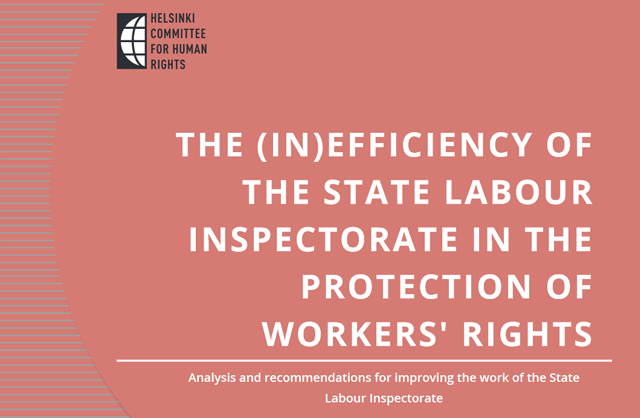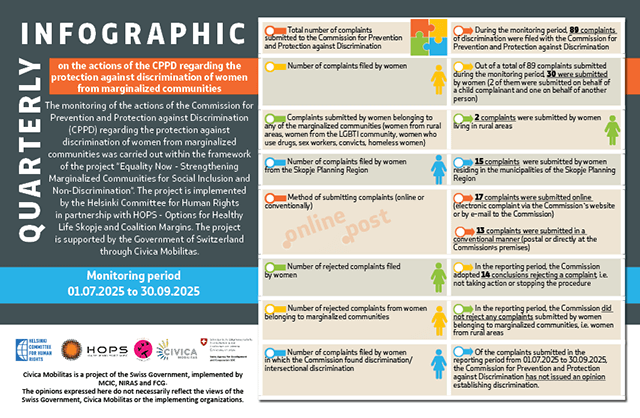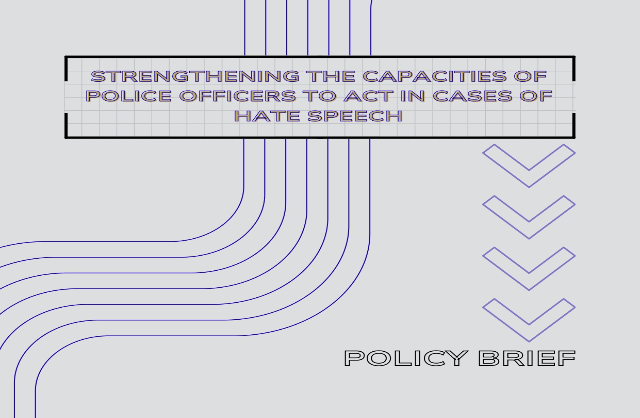The (in)efficiency of State Labour Inspectorate’s protection of labour rights
January 3, 2021

This public policy document was prepared within the project “Increasing productivity by improving the legal framework for labour relations in North Macedonia (II)” and refers to the period from August 2018 to September 2020. The project provides a comprehensive review of labour rights, including measuring citizens’ satisfaction with the protection mechanisms against discrimination and violations of workers’ rights. Furthermore, the project provides recommendations for improving the legislation in accordance with international standards. In addition, the activities include monitoring the labour inspection and constantly informing the public about the situation with workers’ rights, which contributes to raising public awareness about access to protection mechanisms. One of the project’s key activities is monitoring the work of the State Labour Inspectorate (SLI).
SLI is the primary and most important mechanism in the protection of workers’ rights. SLI supervises the implementation of the legislation regarding labour relations, employment, and occupational safety. The Inspectorate also controls the compliance with collective agreements, employment contracts, and other acts that regulate and exercise the rights, obligations, and responsibilities of workers and employers in the area of labour relations, employment, and occupational safety. Considering the easily accessible and free administrative procedure, SLI is the most commonly used protection mechanism through which the citizens of Macedonia seek institutional protection of employment rights. As part of the working group for drafting the new Law on Labour Relations (LLR), the SLI plays a vital role in advancing domestic labour legislation and its harmonisation with international labour legislation. Primarily, this refers to the European Union (EU) directives and the conventions of the International Labour Organization (ILO).
The pandemic caused by COVID-19 led to a health and labour crisis and, as never before, tested the functionality and effectiveness of SLI. Workers were the first to be affected after a state of emergency was declared in the country to deal with the effects of the coronavirus. The crisis for them meant a struggle to preserve their own and the health of their families and a struggle to provide for their survival. This situation produced a gross violation of workers’ rights, the cases of which was increasing daily and required a quick and efficient response from the SLI.
The aforementioned finding points to the need and importance of an efficient and functional SLI, which will continuously provide promotion and timely protection of workers’ rights. For that purpose, this public policy document will provide recommendations for overcoming the challenges and problems that SLI faces, registered through continuous monitoring of its work in the period from August 2018 to September 2020. The objective is to contribute to improving the work of SLI.
This product was prepared within the project ‘Improved productivity through better labour legislation in North Macedonia’ funded by the Good Governance Fund from the UK Government with the support of the British Embassy Skopje. The content of this publication does not necessarily reflect the position or the opinions of the UK Government.


